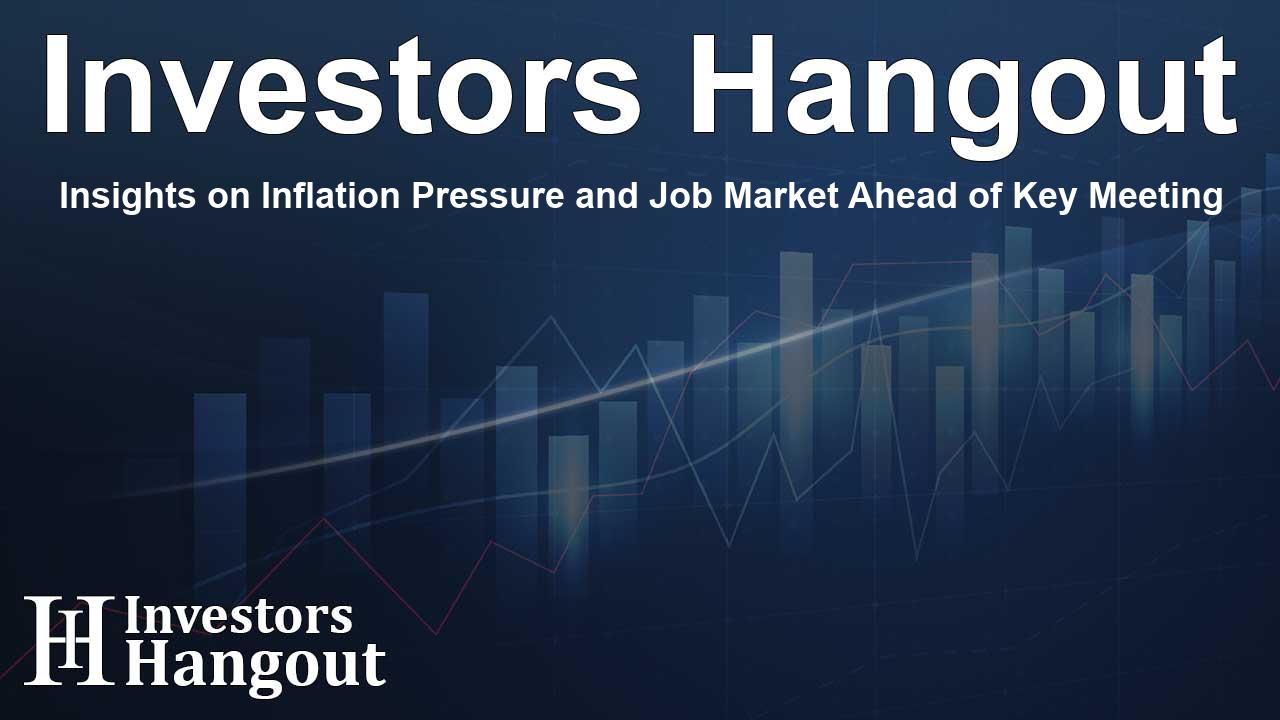Insights on Inflation Pressure and Job Market Ahead of Key Meeting

The Federal Reserve's Current Stance on Inflation
Fed chair Powell is set to deliver a crucial address this week. The Federal Reserve is capturing attention as investors eagerly await this annual address at the Jackson Hole Economic Symposium on Friday.
Ahead of this event, investors tuned in to another important gathering where the minutes from the Federal Open Market Committee (FOMC) meeting, held in late July, were released. These minutes provide critical insights into the thoughts and concerns of Fed officials beyond just their voting outcomes and press statements.
The FOMC minutes highlighted a significant concern among members regarding inflation, suggesting that the Fed is currently prioritizing inflation control over employment risks.
Chris Zaccarelli, chief investment officer for Northlight Asset Management, expressed a common sentiment from the minutes: "The Fed meeting minutes clearly show why they didn’t cut rates at the last meeting – because the majority of officials thought the risk of higher inflation outweighed the risk of higher unemployment.”
The minutes detailed that inflation remains a primary concern among members, with indications that the effects of tariffs are becoming evident in price increases for goods.
"Participants noted that tariff effects were becoming more apparent in the data, as indicated by recent increases in goods price inflation, while services price inflation had continued to slow,” the minutes reflect. They also mentioned that some members believed that tariff effects were concealing the underlying inflation trend, although overall inflation approached the target levels.
The Anticipation of Rising Inflation Rates
According to the FOMC minutes, members predicted that inflation would likely rise soon, influenced by tariff impacts, although the timing of this increase remains uncertain.
“Participants judged that considerable uncertainty remained about the timing, magnitude, and persistence of the effects of this year’s increase in tariffs. Many participants noted that it could take some time for the full effects to reflect in consumer prices,” the document states.
Factors contributing to this anticipated lag include inventory stockpiling, gradual price adjustments based on contract renewals, and ongoing trade discussions.
“As for the magnitude of tariff effects on prices, a few participants observed that evidence suggested that foreign exporters were primarily not bearing the increased tariffs, resulting in domestic consumers and businesses feeling the financial effects,” the minutes indicated.
Despite these observations, members recognized that companies were implementing various strategies to manage tariff costs. These strategies comprise negotiating better supplier terms, enhancing efficiency, or absorbing some costs through reduced profit margins.
Key Considerations for Future Fed Actions
As Fed Chair Powell approaches the Jackson Hole symposium, analysts are keen to decipher his thoughts on the matter. While insights are expected, it appears he may opt to remain cautious in revealing the Fed's next steps.
Analysts believe Powell will stress the data-dependent nature of the Fed's decisions, closely monitoring upcoming job and inflation reports that could influence future rate adjustments.
Unless unexpected negative data emerges from significant reports, it's anticipated that the FOMC's decision-making will hinge on how the unemployment risks measure against inflation concerns.
“The labor market remains unpredictable; however, current data offers limited substantiation for concerns raised after the July job report,” according to Eric Teal, chief investment officer for Comerica Wealth Management.
While there were indications of manageable labor market conditions in the meeting minutes, following the release of the July jobs report—which revealed the addition of only 73,000 jobs, significantly below the expected figures—challenges remain on the horizon.
Frequently Asked Questions
What were the primary concerns expressed in the FOMC minutes?
The minutes indicated a greater concern about inflation compared to unemployment, with discussions on tariff impacts being significant.
How did recent tariff increases affect inflation expectations?
FOMC members noted that tariff increases were starting to show effects on goods price inflation, leading to expectations of rising inflation in the near future.
What strategies are companies implementing to manage tariff costs?
Companies are exploring various approaches such as negotiating supply contracts, adopting new efficiencies, or accepting lower profit margins to mitigate the impact of tariffs.
What data will the Fed consider before making rate cuts?
The Fed will consider upcoming job and inflation reports, as they are essential to their decision-making process regarding rate adjustments.
What factors could affect the timing of inflation increases?
Factors such as inventory adjustments, gradual price updates, and ongoing trade negotiations can all play a role in the timing of inflation increases.
About The Author
Contact Ryan Hughes privately here. Or send an email with ATTN: Ryan Hughes as the subject to contact@investorshangout.com.
About Investors Hangout
Investors Hangout is a leading online stock forum for financial discussion and learning, offering a wide range of free tools and resources. It draws in traders of all levels, who exchange market knowledge, investigate trading tactics, and keep an eye on industry developments in real time. Featuring financial articles, stock message boards, quotes, charts, company profiles, and live news updates. Through cooperative learning and a wealth of informational resources, it helps users from novices creating their first portfolios to experts honing their techniques. Join Investors Hangout today: https://investorshangout.com/
The content of this article is based on factual, publicly available information and does not represent legal, financial, or investment advice. Investors Hangout does not offer financial advice, and the author is not a licensed financial advisor. Consult a qualified advisor before making any financial or investment decisions based on this article. This article should not be considered advice to purchase, sell, or hold any securities or other investments. If any of the material provided here is inaccurate, please contact us for corrections.
